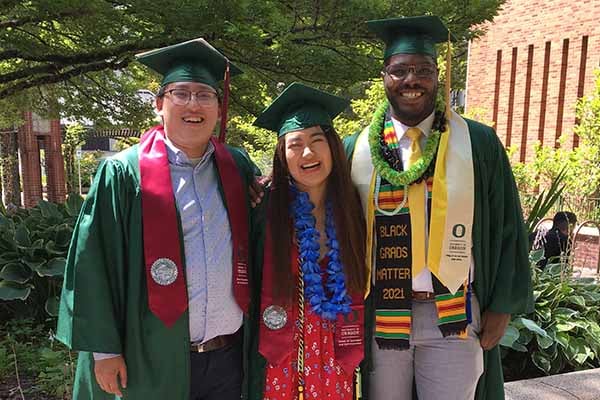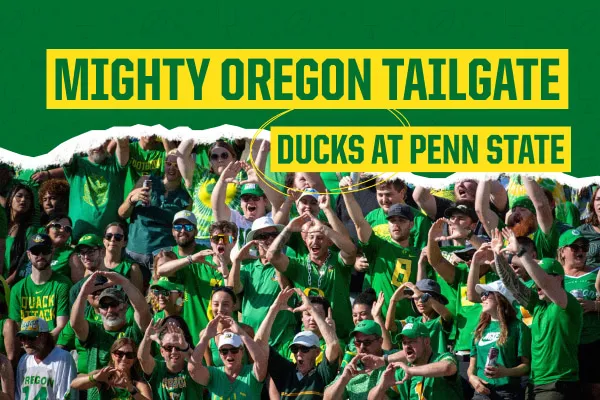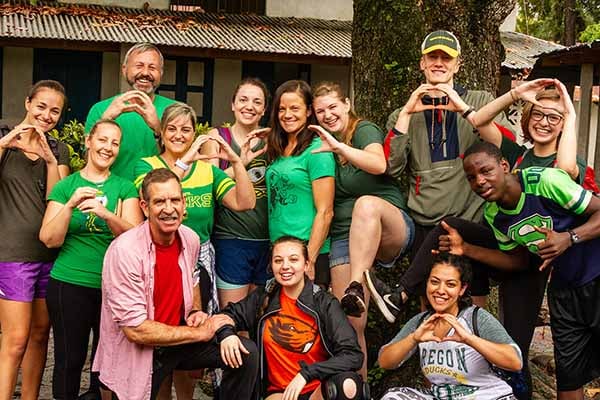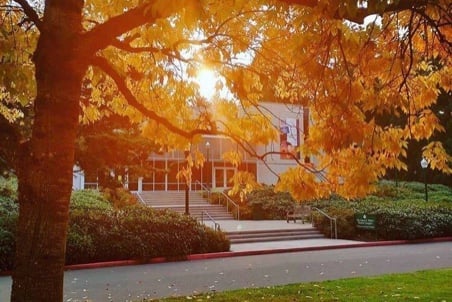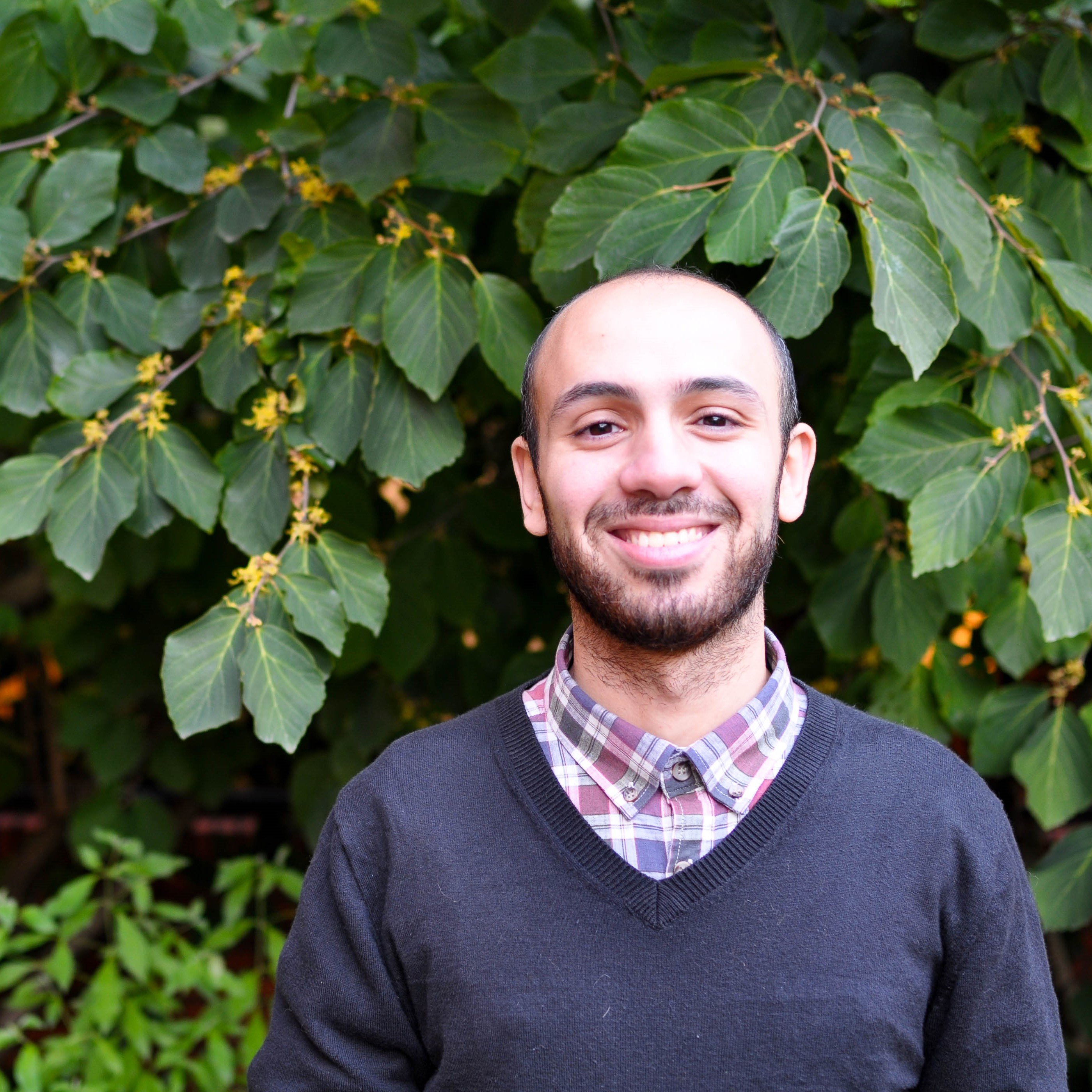Awab Al-Rawe
Job Title: Program Analyst-Ombudsperson, Oregon Health Authority
UO degrees: BA, '14 (international studies), MS, '17 (conflict and dispute resolution)
Part of the Daily Emerald "Alumni Take Flight" series
Awab Al-Rawe is a Program Analyst-Ombudsperson for the Oregon Health Authority, where he receives, investigates and resolves complaints and systemic barriers from the public and medical providers regarding access and quality of care for Oregonians served by the Oregon Health Plan. Awab is also a member of the UOAA Board of Directors.
What led you to seek a career focused in conflict resolution?
I grew up in Baghdad, Iraq, and my parents - as typical Iraqi parents - had this whole plan laid out for me: which college to attend, to go to medical school, get my medical degree and work as a doctor. Unfortunately, when I was young, our family became refugees in Syria after the US invaded Iraq. Witnessing mass violence and instability brought me the interest of learning more about conflict resolution on both a personal level, and on an international scale. Since then, my focus has been understanding the psychology of conflict, how people work with each other, and ways we can prevent going to war with one another.
What skills or key takeaways did you gain from your time at the UO that you now implement in your career?
I am a proud double Duck, meaning I got my undergraduate and graduate degrees from the UO. My undergraduate degree was in international studies and my master’s was in conflict resolution. There are the academic skills that you build, but there are also unique memorable experiences in classes where I feel like I really grew and developed as a person. In a class called Israelis and Palestinians, we acted as characters in the Israeli and Palestine conflict. It was a cool experience from that class to learn hands-on skills in negotiating, compromising, and understanding how difficult it might be for politicians to come up with decisions under pressure and scrutiny. Outside of class, being a student leader of the Arab Student Union. We held a series of conflict and cultural conversations between Jewish people and Muslims at the UO. This was by far the most incredible experience where I was giving presentations, collaborating with other students and organizations, and writing the program's curriculum. Most importantly, the program brought people together and developed friendships while navigating challenging topics. I have used this experience during job interviews to demonstrate the invaluable cultural agility and awareness that I have developed while leading this program. I continue to reflect on this experience as I work with our diverse communities in Oregon to address issues like health inequities and access.
What tips do you have for students navigating the job market during the current pandemic?
It’s undeniably hard for students, especially those who are graduating now, to find a job that is ideal for them. My advice is to stay patient and don't be scared about change. If you don't find your dream job right away, pick something different and try it out. Moving from one job to the next is not necessarily a bad thing, because you're gaining experience and growing. Don’t be afraid to try new things you might be unfamiliar with because it will build your professional skills.
How can students be most effective—and competitive—in their first job after graduation?
In my first job after graduation, I found that being engaged and having meaningful experiences in school makes so much difference. One of the things that earned me a promotion was being involved as a student and learning many different languages throughout my time at the UO. There are companies that look for diversity in this sector so using this status, along with my extracurriculars, was so beneficial. Being comfortable with your studies and involved in school will definitely help you in the interviewing portion of a job. This is especially true if you want to do some sort of community engagement or service job. Use your time as a student to get involved, whether it be DuckTV, student government, or whatever interests you.
What are your tips for effective networking, and how can students build a professional network early on?
I definitely would not leave the networking and job searching until your last term of college. Even in graduate school, some of my colleagues didn't know what they wanted to do after they graduated, which is not abnormal. For me, I had this clear idea because I knew what interested me and was actively working towards that. My advice is for students to find out what they really like and what makes them excited. If it is starting your own business, maybe go for an MBA, or if it’s legal, try reaching for law school. There are many paths you can take so knowing more about yourself and what makes you happy will lead you to work on your strengths.
Do you have a favorite UO memory?
There are a lot of them, and it’s still going on. I still go to campus to play soccer several times a week. Soccer has been my favorite memory of being on campus. I played literally the first day I arrived in Eugene from Syria. I continued to play and gather friends, and eventually formed a team. It was the friendships and the soccer itself that were by far my favorite part of being at the UO.
Written by Shannon Enriquez, student reporter for the Daily Emerald



